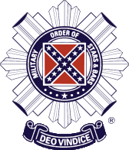| |
HORACE RANDAL
1833 – 1864
Horace Randal was born January 4, 1833, in McNairy County, Tennessee. His parents moved to San Augustine, Texas, in 1838, where his father, a doctor and army surgeon, was elected Texas congressman. Randal was appointed to West Point in 1849 and graduated 5 years later. He was posted to the infantry and transferred to the 1st Dragoons in 1855 with whom he fought Indians on the southwest frontier. In 1857 the Secretary of War Jefferson Davis recommended a brevet promotion of Randal’s gallant and meritorious conduct in affairs with the Apache Indians". The week before Lincoln’s inaugural, Lt. General Winfield Scott who thought highly of Randal allegedly offered him a commission in the Regular US Army to keep him loyal.
Randal followed his state and resigned from the U S Army on February 26, 1861. On March 26 he was commissioned a 1st lieutenant in the Confederate Army. By April 25 he was a captain and ordered to Pensascola where he served as quartermaster for Gen. Braxton Bragg. In the summer of 1861 Randal resigned because so many officers junior to him in the old army were being promoted over him. He intended to return to Texas and raise a regiment. His brother-in-law Maj. Gen. G. W. Smith who was in command of a corps took up his cause with President Davis during which time Randal served as a volunteer aide-de-camp to Smith. He was eventually appointed to the position by Davis as a lieutenant with responsibility of inspector general of Smith’s troops during the winter of 1861. Gen. Joseph E Johnston admired Randal and "often gave him the most important duties and authority". A fellow staff officer remembered him as "in some respects the most remarkable man I met during the war". Randal was, among other talents, a most remarkable horseman continually riding at a full gallop no matter what the terrain. His West Point roommate and friend John Bell Hood predicted that "he would be the cavalry leader of the war if he got a chance". On December 19, 1861, Randal was authorized to a regiment of cavalry out of the companies then being raised in Texas. On February 12, 1862, he was commission colonel of cavalry. He returned to Texas and was given command of the 28th Texas Cavalry which fought dismounted most of the war. By December Col. Randal was in charge of a brigade of infantry under Gen. Henry McCulloch’s division. His brigade was left in reserve during the June 25, 1863, attack on Milliken’s Bend. On November 8, 1863, Gen Kirby Smith recommended him for promotion to brigadier general, but the brigade was too small. At the battle of Mansfield, April 8, 1864,Randal’s brigade crushed the union line and led the pursuit capturing five hundred prisoners and the Union wagon train. The army commander reported that "in vigor, energy, and daring Randal surpassed my expectations, high as they were of him and his fine brigade". Five days after the battle, Gen Kirby Smith assigned Randal to duty as brigadier general to date from April 8. While leading his brigade in a charge at Jenkins’ Ferry in Arkansas on April 30, 1864, Randal was mortally wounded, and died on May 2. He was initially buried on the battlefield but was reburied in old Marshall Cemetery in Marshall, Texas. Randall County, Texas is so named in his honor.
| |






